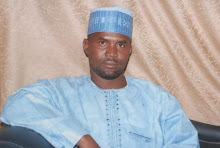The history of democracy in Nigeria which began during the colonial period was not one of bed of roses. Ethnicity and religion had been playing significant roles but unfortunately the political elites had used these factors in pursuit of their personal and selfish interest to hold on to power. The first republic saw the emergence of parties that are regionally and ethnically based. The major political parties which were Northern People’s Congress (N.P.C) has its stronghold in the Northern part of the country and is dominated by the Hausa-Fulani, Action Group (A.G)had its stronghold in the Southwest and is dominated by the Yoroba’s and National Council of Nigeria and Cameroun (N.C.N.C)is dominated by the Igbo’s. Ethnicity is one of the major problem that led to crisis which led to instability in the first republic and became the excuse that some overzealous and tribal military officers from the South east terminated the life of the first republic and laying the foundation of military incursion into Nigerian politics and governance. The second republic also is a replica of the first republic as the political parties strongholds are also ethnic and regionally based with National Party of Nigeria (N.P.N), People’s Redemption Party (P.R.P) and Great Nigeria People’s Party (G.N.PP) had their strongholds in the North. Unity Party of Nigeria (U.P.N) with stronghold in the South west and Nigeria People’s Party (N.P.P) with it stronghold in the Southeast. The moon slide victory of the ruling N.P.N in 1983 elections which include wining some states in the South west led to political violence and heating the polity as U.P.N could not believed that a party from the North could win elections in its heartland .Again the military led by Major General Muhammadu Buhari seized power thereby returning Nigeria to the dark era of military dictatorship which had hindered Nigeria’s growth and development.The third republic which could had been the best ever in Nigeria’s history was annulled by General Ibrahim Babangida .Two parties contested for the election Social Democratic Party (S.D.P) and National Republican Convention (N.R.C) which the candidate of S.D.P late Chief Moshood Abiola could had made history as the first presidential candidate to break the jinx of been elected by majority of Nigerians outside his region. The transition to civil rule in 1999 which Chief Olusegun Obasanjo emerged winner also faced similar problem of ethnicity has his own people from the Southwest rejected him for the sole reason that he is a candidate supported and finance by the North. The transition also witness again the politics of ethnicity and regionalism as with the exception of Peoples Democratic Party (P.D.P), All Nigeria Peoples Party (A.P.P then) is based in the North and Alliance for Democracy (A.D) in the South West. The tenure of President Obasanjo also saw the proliferation of ethnic and religious fanatics under various bodies that openly preaches hate, harm and disunity among the Nigerian people. Ethnic, regional and religious based groups are now among the enemies of democracy and oneness of Nigeria as a Nation. During the 2003 election the people of Southwest as with their normal tradition of politics, supported one of their own, one of their respected elders had even said that any Yoruba that voted for Buhari is a basted (meaning any Yoruba that voted against a Yoruba is a bastard). To make matters worse groups such as OPC, NDPVP and MOSSOP which are more or less terrorist organisations actively participated in the election process through supporting candidates that are ethnically closer to them. Democracy in Nigeria is facing another threat by tribal and regional based groups such as Afenifere ,Y.C.F (Yoruba council of elders), A.C.F (Arewa consultative forum), Ohanaze Ndigbo, Middle Belt forum e.t.c which are organisations formed to protect tribal and regional interest are also threat to democracy in Nigeria as they only speak for their groups interest not togetherness of Nigeria and its development.Activities of religious groups such as Christain Association of Nigeria (C.A.N) and Izalatul Bidi’a Wa Ikamatus Sunnah are also worrisome in the democratic process in Nigeria as they openly converse for a candidate of their faith affiliation without caring about his competency and patrotism .They play with people’s emotions by preaching disunity and intolerance in places of worship, throwing competence ,honesty ,dedication and sacrifice to the dogs. How long can democracy survive in such a kind of situation in Nigeria. When will people vote credible people not based on ethnic, regional and religious sentiments? When will politicians stop using ethnicity, regionalism and religion to canverse for votes? These are some questions that Nigerians should have solution to in 2007 elections. Presently most of those angling for the presidency are using region as criteria to be used for electing them .Various agitations for power to either return to North or Southeast that there own was only once at helm of affairs or the South-South that claims none of their own was ever at the helm of affairs. Criteria for competence, dedication, honesty, good governance e.t.c are downplayed for tribal and regional interest. The march to true democracy and good governance might take sometime if Nigerians continue to allow themselves to be manipulated to elect credible and competent leaders against myopic sentiment of just electing one of our own irrespective of either he/she has the qualities, ability and capability to a Nigeria toward economic, social and political development of our great Nation.
Chaji wrote from P.O.Box 248 G/Gyadi Kano.
Subscribe to:
Post Comments (Atom)

No comments:
Post a Comment